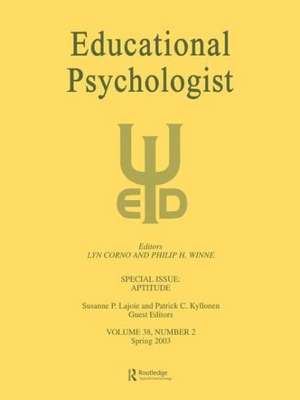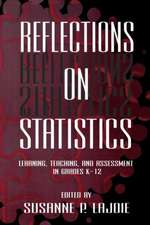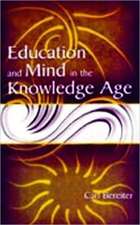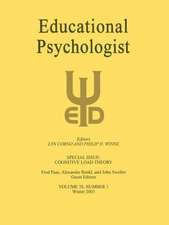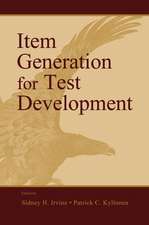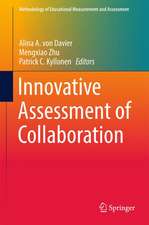Aptitude: A Special Issue of Educational Psychologist
Editat de Susanne P. Lajoie, Patrick C. Kyllonenen Limba Engleză Paperback – mai 2003
Preț: 341.22 lei
Nou
Puncte Express: 512
Preț estimativ în valută:
65.30€ • 67.46$ • 54.35£
65.30€ • 67.46$ • 54.35£
Carte tipărită la comandă
Livrare economică 25 martie-08 aprilie
Preluare comenzi: 021 569.72.76
Specificații
ISBN-13: 9780805895971
ISBN-10: 0805895973
Pagini: 48
Dimensiuni: 210 x 280 x 4 mm
Greutate: 0.1 kg
Ediția:1
Editura: Taylor & Francis
Colecția Routledge
Locul publicării:Oxford, United Kingdom
ISBN-10: 0805895973
Pagini: 48
Dimensiuni: 210 x 280 x 4 mm
Greutate: 0.1 kg
Ediția:1
Editura: Taylor & Francis
Colecția Routledge
Locul publicării:Oxford, United Kingdom
Public țintă
ProfessionalCuprins
Volume 38, Number 2, 2003Contents: L. Corno, P.H. Winne, Editors' Statement. P.C. Kyllonen, S.P. Lajoie, Reassessing Aptitude: Introduction to a Special Issue in Honor of Richard E. Snow. P.L. Ackerman, Aptitude Complexes and Trait Complexes. D.J. Woltz, Implicit Cognitive Processes as Aptitudes for Learning. V. Shute, B. Towle, Adaptive E-Learning. S.P. Lajoie, Individual Differences in Spatial Ability: Developing Technologies to Increase Strategy Awareness and Skills.
Notă biografică
Susanne P. Lajoie, Patrick C. Kyllonen
Descriere
Richard Snow's research influenced many students and colleagues, both directly through his findings and indirectly by inspiring others to carry on the work. A cross-section of his influence is represented in this special issue. The articles present sever
